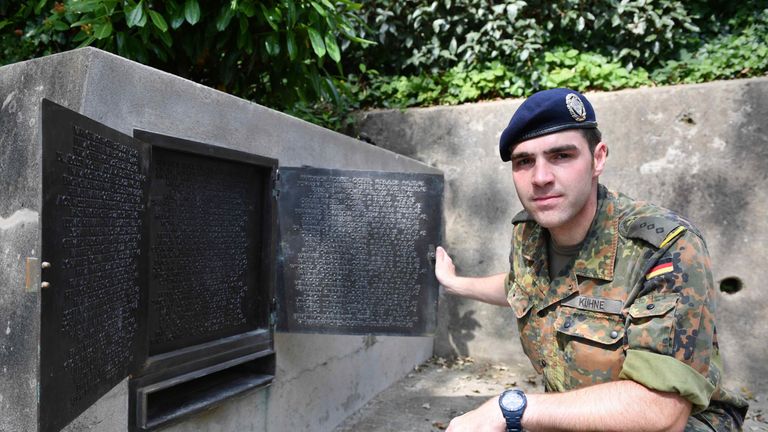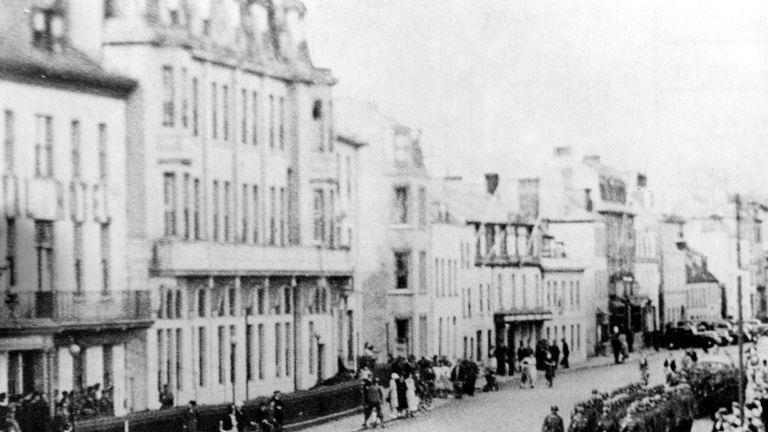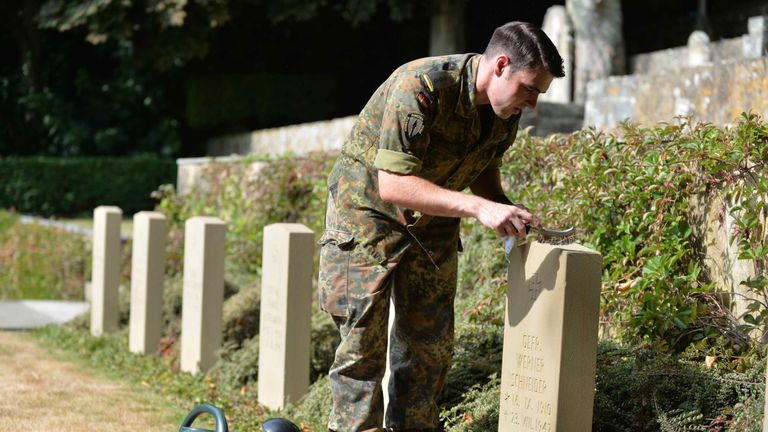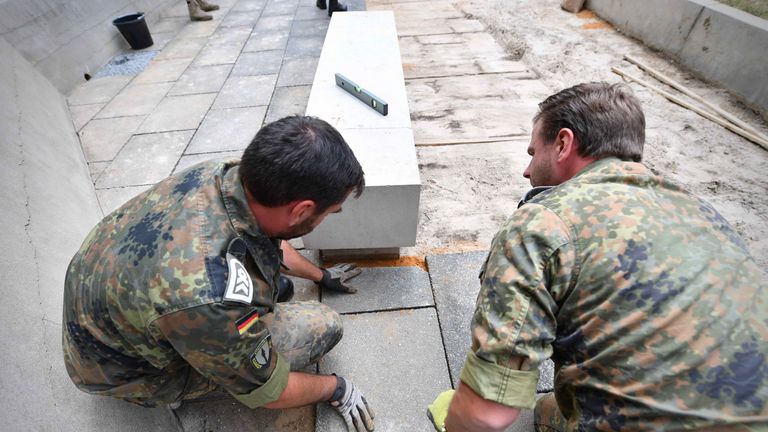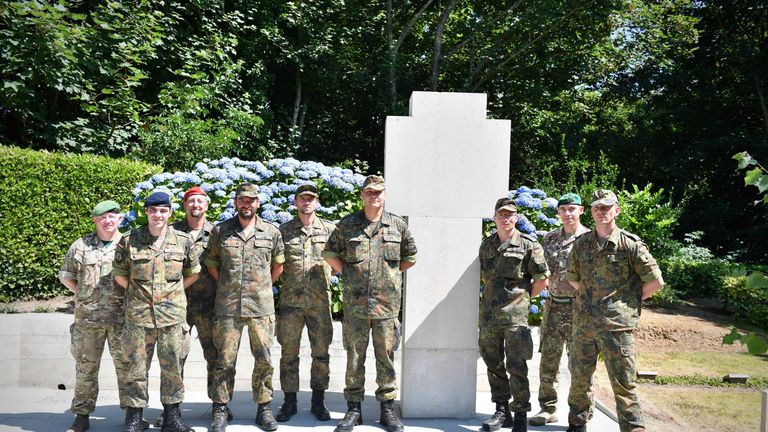German soldiers return to Guernsey for first time since WWII occupation
A small group of German soldiers have been invited to join British soldiers to repair and restore graves at a military cemetery.
Thursday 19 July 2018 22:51, UK
In 1940 their countrymen invaded and occupied but almost 80 years later, German soldiers have returned to Guernsey as friends.
A small group of German soldiers were invited to join British soldiers to repair and restore graves at Fort George's small military cemetery on the Channel island's east coast.
At the invitation of Guernsey's Lieutenant-Governor, the soldiers spent two weeks pressure washing and repairing headstones with supervision from the Commonwealth War Graves Commission.
It is the first time German military have been in uniform on the island since the wartime occupation, which lasted until 1945.
The Channel Islands were left defenceless at the beginning of World War Two and were invaded in June 1940, the only part of the British Isles to fall under German control during the conflict.
Thousands of islanders were evacuated to the UK and for those who remained, life was very difficult.
When the German volunteers, all from NATO's Allied Rapid Reaction Corps in Gloucestershire, arrived on the island this month they may not have been sure of what to expect - but all were welcomed by the islanders.
German Captain Sebastian Kühne, from the Allied Rapid Reaction Corps, said: "When we arrived on Guernsey we had a very warm reaction - so many people supporting us and they offered their spare time to help us with our endeavours, providing us with tools, and showing us around the island.
"I feel very touched to work on the graveyard and see the names of the British and German soldiers that died here because they are very young, most younger than me."
German businessman Johann Andreas Werhahn, whose father served as a corporal during the German occupation, travelled from northern Germany to be part of the event.
He said: "I'm thankful that my father came back home.
"He rarely spoke about the war but he told us he was in Guernsey."
Guernsey resident Graham Williams welcomed the return of German troops to the island, saying: "Some people here have long memories, but the majority of people say it's over and done with and it's part of our history."
Major Laurence Roche, from NATO's Allied Rapid Reaction Corps, said: "There are people alive on Guernsey who still remember the occupation, but most islanders feel than an appropriate amount of time has now passed.
"The German soldiers who have been invited to be here are our friends and allies, and they have been touched by the reception that have received from the people they've met."
There are 111 German war graves in the cemetery, and Maj Roche said: "It's very unusual to have German and British World War Two headstones in the same military cemetery and this represents the unique history of the island."
